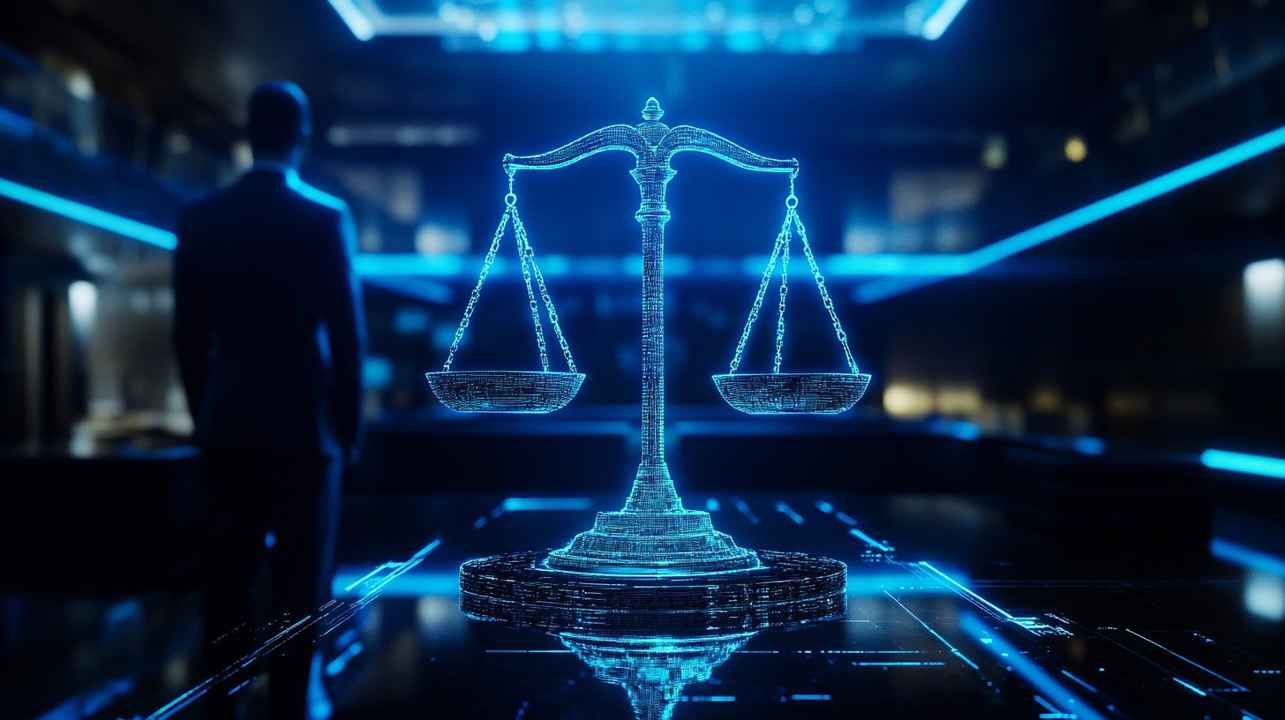"Strategic reserves" are rising, will Bitcoin reshape the "balance sheets" of sovereign nations and corporate institutions?What Does a Strategic Rese
Gold, as a global strategic reserve asset, has a history of over a thousand years, while 15-year-old Bitcoin is launching a new challenge.
What Does a Strategic Reserve Asset of 1 Million BTC Mean?
According to statistics from the World Gold Council, as of the third quarter of 2024, the total gold reserves of the Federal Reserve reached 8,133.46 tons (approximately $530 billion), firmly holding the top position globally. Meanwhile, the current market value of 1 million BTC is close to $100 billion, accounting for about 19% of the U.S. gold reserves, which is quite substantial.

Source: World Gold Council
With Trump and an increasing number of institutions/enterprises and sovereign nations beginning to consider establishing "Bitcoin strategic reserves," is Bitcoin's "Fort Knox moment" about to arrive? Can it, like gold, become an important component of the global reserve asset system?
The next decade may be a critical time window for this answer to be revealed.
What Does "Strategic Reserve Asset" Mean?
At the Bitcoin2024 conference held in July 2024, Trump explicitly promised in his speech to "never sell" the Bitcoin held by the government and any future acquisitions, insisting on the concept of a "strategic Bitcoin reserve."
With Trump's election and the recent appointments of crypto-friendly individuals to key positions, including the U.S. Secretary of the Treasury, the SEC Chair, and the White House crypto czar, the idea of incorporating Bitcoin into the strategic reserves of the United States is closer to reality.

What Exactly is a "Strategic Reserve Asset"?
Fundamentally, a "strategic reserve asset" refers to key assets held by a national or regional government, used to respond to economic fluctuations, financial crises, or geopolitical risks, maintaining national financial stability, economic security, and international competitiveness. Such assets typically possess characteristics of high value and universal acceptance, security and stability, and liquidity.
At the corporate level, "strategic reserve assets" help achieve financial stability, enhance risk resistance, and support long-term growth strategies. Especially during economic turmoil, strategic reserve assets often constitute the primary barrier for enterprises against risks.
Traditional strategic reserve assets mainly include:
- Gold: Widely recognized as a stable store of value due to its scarcity and anti-inflation properties;
- Foreign exchange reserves: Primarily U.S. dollar-denominated reserve currencies, forming an important means to support international trade and payments;
- Special Drawing Rights (SDR): Allocated by the International Monetary Fund (IMF) to supplement member countries' official reserves;
It is evident that assets capable of becoming "strategic reserves" must possess value stability, global recognition, and convenient circulation. Bitcoin, as an emerging digital asset, is gradually meeting these conditions and is beginning to be viewed as a potential option alongside gold.
Notably, in addition to Trump's "commitment," on July 31, 2024, U.S. Senator Cynthia Lummis submitted the "Bitcoin Strategic Reserve Act of 2024" to Congress, explicitly requiring that "the U.S. Treasury must purchase 1 million BTC within five years and must hold it for at least 20 years, unless used to pay off outstanding federal debt," and further plans to require the Federal Reserve to "use a certain amount of net profits each year to purchase Bitcoin."
This plan aims to ensure that the U.S. government holds sufficient Bitcoin over the next twenty years, providing a long-term financial hedging tool for the nation. The bill has been submitted to the U.S. Senate Committee on Banking, Housing, and Urban Affairs, requiring discussion and voting, and will be sent to Trump for signature into law once passed by both houses.

Why Bitcoin Beyond Gold and Foreign Exchange?
From an asset allocation perspective, more gold reserves do not necessarily mean better outcomes.
The primary consideration is that gold, as a physical asset, lacks interest or yield attributes, and its liquidity returns are not significant. This is the core reason for Buffett's long-standing cautious attitude towards it—"Gold cannot produce interest payments, thus lacking the compounding effect."
More critically, gold reserves incur high storage and maintenance costs. For the vast majority of countries, effective management and security of gold reserves have become a significant financial burden. Take the Federal Reserve's iconic gold vault "Fort Knox" as an example; its security investment is astonishing:
Located deep in the strategic heartland of Kentucky, it employs an underground structure, equipped with thick reinforced concrete protective walls and a round-the-clock security system, with a military presence of tens of thousands year-round. This makes gold reserves not only a security requirement but also a continuous heavy asset financial expenditure.

In contrast, Bitcoin's storage costs are nearly negligible. It does not require physical space or expensive protective facilities; it only needs to rely on secure wallets, multi-signature technology, and decentralized network verification systems to achieve efficient storage management.
At the national level, the storage expenditure for Bitcoin mainly focuses on technology and network maintenance, which is far lower than the physical protection costs of gold. This means that even if Bitcoin does not generate direct returns, its holding costs are significantly better than gold, leaving more room for net asset growth.
Additionally, physical gold transactions often involve complex processes such as physical delivery, storage, and transportation, which can take days or even weeks. The gold market is also often constrained by the time and geographical limitations of the traditional financial system, while Bitcoin can be traded 24/7 through exchanges, covering global markets.
Beyond gold, foreign exchange reserves (such as euros, yen, etc.), as fiat currencies issued by other countries, have values that not only depend on the economic conditions of the issuing countries but are also more susceptible to geopolitical risks. Bitcoin, with its scarcity, can avoid monetary policy interventions and the devaluation risks caused by excessive issuance. It allows any holder (whether individual, institution, or sovereign nation) to freely store, transfer, and trade globally.
This decentralized characteristic ensures that Bitcoin is not affected by political or economic interventions, and even in times of global turmoil, its value storage function can still operate stably.


Enterprises/Institutions and Sovereign Nations are Becoming BTC "Piaoxiu"
Currently, with a total market value of $2 trillion, Bitcoin, with its characteristics of no need for physical storage, global circulation, high transparency, and anti-inflation, is gradually entering the ranks of potential reserve tools. More and more companies/institutions and even sovereign nations are beginning to explore incorporating Bitcoin into their strategic reserve asset systems.
U.S. Government: One of the World's Largest Bitcoin Holders
Surprisingly, the U.S. government is actually one of the largest Bitcoin holders globally. Over the years, through law enforcement actions, it has seized a large amount of Bitcoin from cybercriminals, money laundering organizations, and dark web markets, currently holding about 200,000 BTC, valued at nearly $20 billion.
As the "most crypto-friendly president in U.S. history" (at least in terms of public statements), it remains to be seen whether Bitcoin can be incorporated into the federal reserve asset system during Trump's next four years in office. However, it is foreseeable that the Bitcoin held by the U.S. government may move away from frequent selling patterns and instead explore its long-term strategic value.

El Salvador: Daily Investment of 1 BTC
El Salvador, as the first country in the world to establish Bitcoin as legal tender, enacted relevant legislation on September 7, 2021. It subsequently launched the electronic wallet Chivo, preloading $30 worth of Bitcoin for each user who downloads it, integrating Bitcoin into the national economic system and demonstrating its firm "Bitcoinization" path.
Whenever there is significant volatility in the crypto market, El Salvador's President Nayib Bukele often promptly announces Bitcoin purchases via social media, injecting confidence into the market. Currently, El Salvador maintains a daily purchase rate of 1 BTC, and with ongoing "bottom-fishing," as of December 10, the BTC holdings reached 5,959.77 BTC, with a holding market value of approximately $577 million.
Although this holding scale is not significant on a global scale, as a small economy, its firm Bitcoin strategy serves as a demonstration, providing a unique experimental case for other countries.

MicroStrategy: All in on Bitcoin
Beyond sovereign nations, the publicly traded company MicroStrategy undoubtedly serves as a benchmark in the "HODL" Bitcoin field—its "buy, buy, buy" strategy for Bitcoin has long been a bold and clear approach, with holdings exceeding those of any publicly disclosed sovereign nation reserves.
MicroStrategy's first public Bitcoin purchase dates back to August 11, 2020, when it spent $250 million to acquire 21,454 BTC, with an initial purchase cost of about $11,652 per BTC. It then entered a continuous accumulation mode, with the most recent purchase on December 9, amounting to approximately $2.1 billion for 21,550 BTC, at an average price of $98,783 per BTC.
As of December 8, 2024, MicroStrategy has cumulatively invested about $25.6 billion to acquire 423,650 BTC, with an average price of about $60,324 per BTC. Based on the current price of $97,000, the holding has an unrealized profit of about $15.5 billion.
Tesla: "Hodling" Bitcoin
On December 20, 2020, following MicroStrategy's Michael Saylor's suggestion for other CEOs to follow suit, Elon Musk first expressed interest in purchasing Bitcoin. In late January 2021, Musk changed his Twitter bio to #Bitcoin, and Tesla subsequently announced the purchase of $1.5 billion in Bitcoin in February 2021.
Tesla sold 10% of its Bitcoin holdings in the first quarter of 2021, which Musk explained was to "test liquidity and verify the feasibility of Bitcoin as a cash alternative on the balance sheet."
According to Arkham data, as of the time of writing, Tesla holds 11,509 BTC, with a holding market value of approximately $1.1 billion.

Other Countries and Mainstream Enterprises/Institutions: Bitcoin Reserves are Becoming Mainstream
The strategic value of Bitcoin is penetrating from the national level to the corporate and institutional level. National reserve layouts directly influence the policy environment, while enterprises are the core driving force for adoption. Bitcoin is no longer just a hedging tool; it has become a key strategic component of corporate balance sheets.
Recently, tech giants like Microsoft and Amazon have received positive advocacy from investors, calling for the inclusion of Bitcoin in their balance sheets.
MicroStrategy founder Michael Saylor proposed Bitcoin investment suggestions to Microsoft's board, believing that this move would significantly enhance corporate value and create long-term shareholder returns.
At the same time, the conservative think tank National Center for Public Policy Research in the U.S. suggested that Amazon allocate 1% of its total assets to Bitcoin to enhance shareholder value and hedge against fiat currency devaluation risks.
Incorporating Bitcoin into the balance sheets of mainstream institutions and traditional enterprises can bring the following advantages:
- Anti-inflation capability: The scarcity of the capped supply of 21 million BTC endows Bitcoin with strong anti-inflation properties, helping enterprises stabilize asset values in a global monetary easing environment;
- Diversified investment portfolio: As an emerging asset class, Bitcoin enriches the dimensions of corporate asset allocation, reducing reliance on a single asset and enhancing financial robustness;
- Enhanced corporate brand and market image: Holding Bitcoin demonstrates a company's embrace of innovative technology and future economic models, enhancing market competitiveness and shaping a forward-looking brand image;
However, in the process of incorporating BTC into balance sheets, enterprises need to address two key issues: how to securely custody large amounts of assets and how to efficiently complete OTC (over-the-counter) transactions to avoid market impact. This has spurred the vigorous development of professional custody and OTC services to meet the strict requirements of enterprises for digital asset management.
It is worth noting that as the market develops, the digital asset service ecosystem is also continuously improving. In the custody field, many platforms are beginning to adopt independent wallet designs and bankruptcy isolation mechanisms, and introducing insurance protections to address various risks. For example, licensed exchanges like OSL in Hong Kong have partnered with insurance companies like Canopius to expand coverage to multiple dimensions, including cybersecurity and technical failures. Meanwhile, in OTC trading, licensed compliant platforms are providing a more standardized and efficient trading environment for institutional investors by connecting with the traditional banking system.
Bitcoin in the Next Decade: Speculative Asset or Global Strategic Reserve?
Bitcoin has risen from a fringe asset to a new star in global strategic reserves. From sovereign nations to mainstream institutions/traditional enterprises, more and more forces are redefining its role. Its scarcity, decentralized characteristics, and high transparency have earned it the title of "digital gold."
Despite ongoing debates about price volatility, Bitcoin's adoption is advancing with unstoppable momentum. If Trump's proposed "strategic reserve asset" concept is realized, the status of BTC will chase after gold, and its strategic significance may surpass that of gold:
While gold has physical scarcity, its distribution and trading rely on complex logistics and regulatory systems. Bitcoin, leveraging blockchain technology, can achieve borderless rapid circulation without physical storage and transportation, making it more suitable as a reserve asset for nations and institutions, bearing more strategic responsibilities. This advantage is also driving professional service providers like OSL to continuously improve their infrastructure, creating one-stop solutions for institutional clients from custody to trading.
In the next decade, the potential of Bitcoin as a global strategic reserve asset will be fully unleashed, and its application scenarios are expected to further expand. From national-level "long-term hoarding" to corporate/institutional "buy and hold," Bitcoin's influence continues to expand. Global leaders and top companies like MicroStrategy, Microsoft, and Amazon have become the best advocates for Bitcoin, greatly enhancing global market recognition of cryptocurrencies.
"The light boat has passed through ten thousand mountains." Regardless of whether Bitcoin can become a strategic reserve asset for the U.S. or other countries in the next four years, it has already achieved a key victory in the journey of adoption. As more institutions position themselves in Bitcoin, the construction of professional digital asset financial infrastructure will play an even more critical role in the future.
Disclaimer: The content of this article solely reflects the author's opinion and does not represent the platform in any capacity. This article is not intended to serve as a reference for making investment decisions.
You may also like
Senate bill targets emissions from AI and crypto data centers

SEC eyes crypto trading overhaul amid calls for reform

Vitalik Buterin emphasises social philosophy in app layer

NFT trader faces prison for $13 million tax evasion

